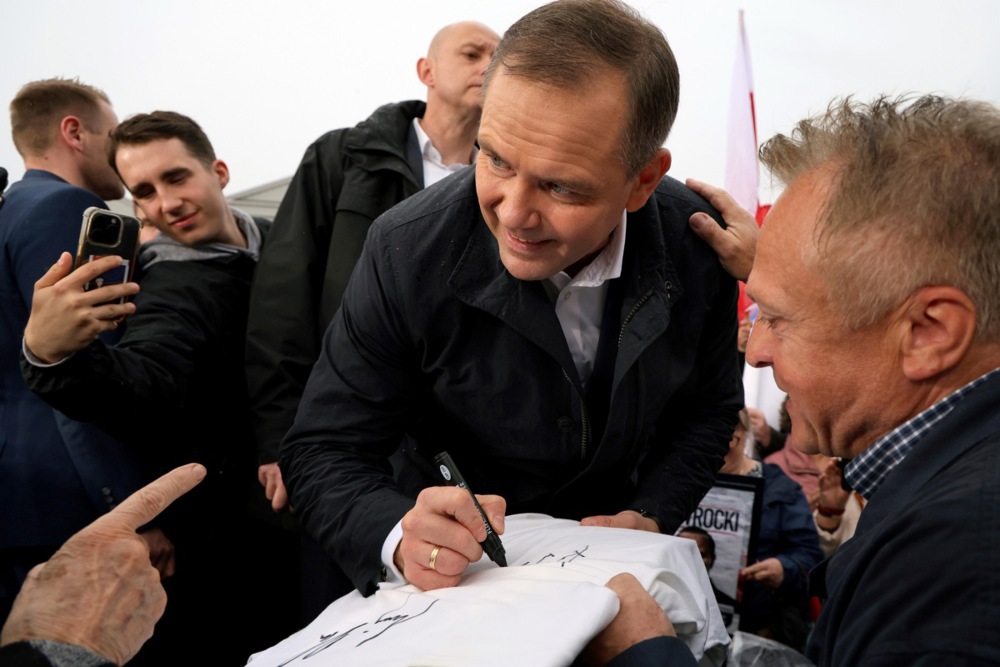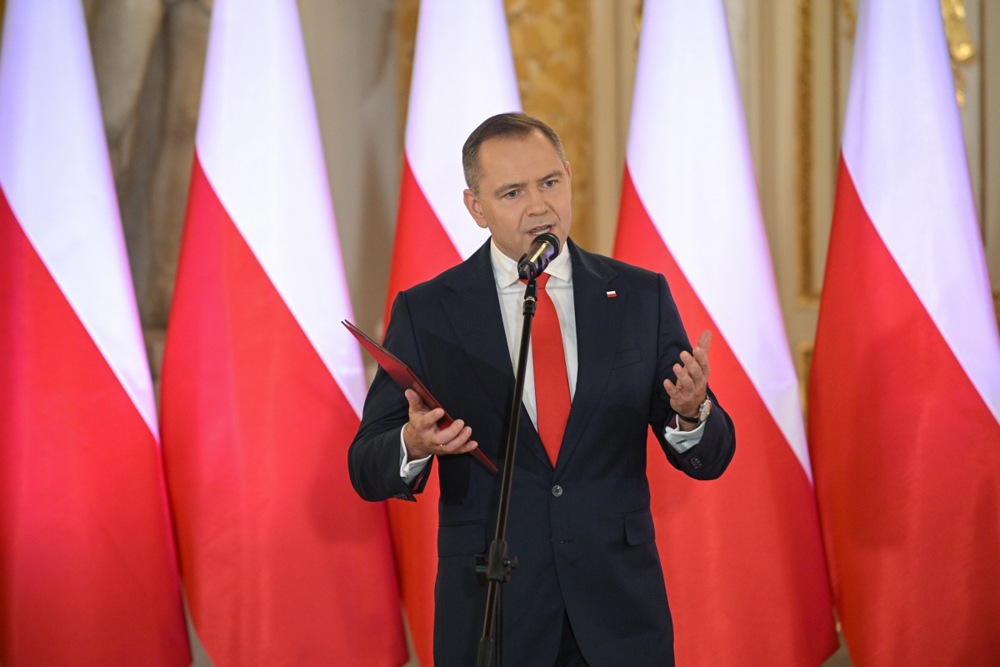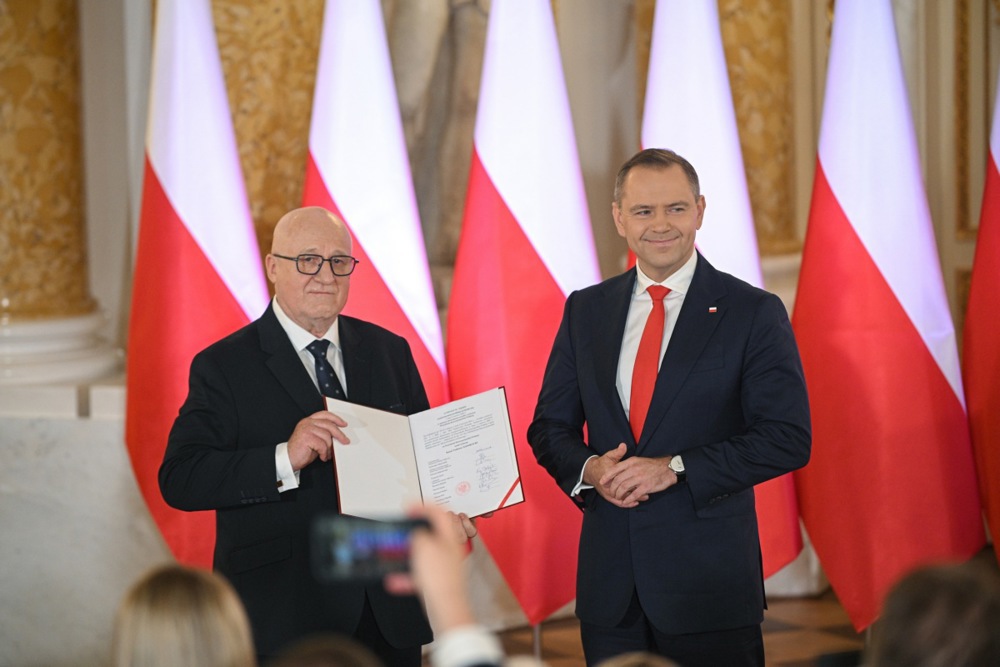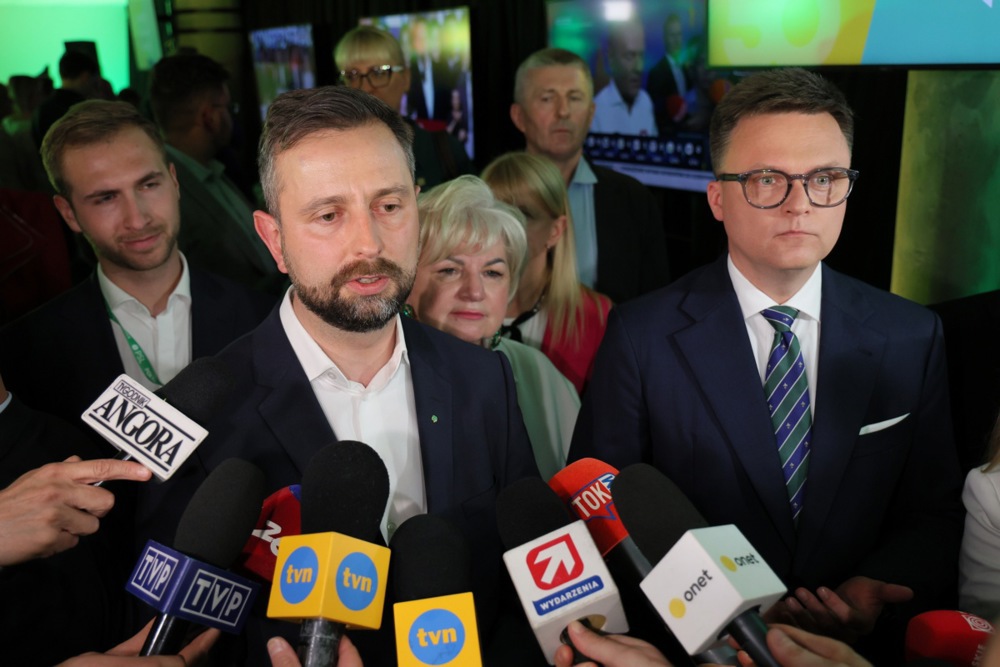Poland’s opposition Conservatives (PiS)-aligned new President Karol Nawrocki has, on his inauguration, thrown down the gauntlet to the centre-left coalition government led by prime minister Donald Tusk.
On August 6, Nawrocki stated he believed would not hold back from advocating the policies on which he was elected.
Tusk, despite the fact that Nawrocki throughout this year’s presidential election stated that the vote was in effect a referendum on the his government, declared that he believed his own mandate to govern obtained in the parliamentary elections in 2023 was valid.
He played down the importance of the presidency, saying on the day of the inauguration that the outgoing PiS-aligned president Andrzej Duda “was not much of an obstacle to the government” and that his administration “will cope” with the Nawrocki.
A president in Poland does not have executive powers but he can block legislation via the use of a veto that can only be overturned by a super majority of 3/5 in parliament, which the present government does not have.
The head of state also has the power to make judicial appointments, is the head of the armed forces, must approve the hiring and firing of the nation’s ambassadors and also has the sole and absolute power of clemency.
The new president took the oath of office on August 6 at a joint session of both the chambers of the Polish parliament and in later ceremonies took command of the armed forces and the presidential chancellery.
Nawrocki strode confidently to the rostrum in parliament, smiled at the government benches and said that his victory was “a blow against government propaganda”. He warned the administration “that you cannot continue like this”.
“People have the right to have election promises made to them delivered on.”
He was referring to the fact that the Tusk government has failed to deliver promises to cut income tax and provide subsidised mortgages.
Nawrocki said there would be no surprises in his approach to office.
“I will do what I promised. I will work against migration, for the maintenance of our currency and for major infrastructural projects such as the construction of the central airport.”
The new President planned to submit legislation cutting tax and for the expansion of the central airport project in the coming days.
He was clear with regard to his stance on international affair.
“I will be the voice of those who want sovereignty, Poland in the EU but not its vassal. I will also be the voice of our army and the modernisation it needs. I will support our alliance with the US and our leading role on the NATO eastern flank,” he said.
He was adamant he would be an example of national tradition.
“I will be the voice for our traditions and our history, our literature and the maintenance of the patriotic traditions in our schools.”
The President praised the efforts of Polish business and workers as the authors of the country’s economic success but pledged that “regions will not be left behind”.
Nawrocki said Poland “will not be an auxiliary economy of its western neighbours and the EU”, while acknowledging the country must “tackle its national debt, housing and demographic deficits”.
He added that he hoped that on social and economic matters at least there could be constructive dialogue with parts of the ruling coalition to build a national consensus.
Nawrocki, referring to the rule of law controversies that have been a feature of the past 10 years in Polish politics and government, declared that Poland “needs to return to the rule of law”. He said that was because the government was failing to honour legislation on the prosecution service and failing to recognise courts and judges.
“I stand as the guardian of the Constitution and must ensure that the sovereign, the people who elected me, have influence over the shape of the judiciary” he stated, adding that he was there to satisfy the people and not the elites.
Concluding his remarks he looked back on Polish history and said that it was possible to achieve a national consensus as long as “we maintain the line of our forefathers that we are Poles and we have Polish obligations”. Those, he said, were to ensure Polish independence and freedom.
Nawrocki defeated Rafał Trzaskowski, the candidate of Tusk’s Civic Coalition (KO) in a second round presidential run-off on June 1, by 51 per cent to 49 per cent on a 72 per cent turnout.
Some of Tusk’s supporters questioned the result, alleging irregularities in the counting of the votes as well as the legitimacy of the Supervisory Chamber of the Supreme Court that validated the result.
The leader of one of the coalition parties, Poland 2050, and Speaker of Parliament Szymon Hołownia refused to give in to pressure to postpone or cancel the inauguration. They held talks with the PiS opposition exploring opportunities for co-operation, thereby causing concern within Tusk’s coalition.
Hołownia’s stance on the election was vindicated when an investigation conducted by the Tusk government’s own prosecution service showed that the irregularities affected only a very small percentage of the electoral districts. They did not affect the overall result, which saw Nawrocki winning by 370,000 votes.
Despite that, his claims in the media that he had been pressured to effectively attempt a coup by refusing to accept the Supreme Court’s validation of the election led to more tension within the ruling coalition.
Nawrocki is a 43-year-old historian who led the Institute of National Remembrance, a body investigating Second World War and Communist history and crimes. He is a native of the city of Gdańsk and the son of two manual workers.
In his student days he worked as a security guard in a hotel and was also an amateur boxer, becoming a regional heavyweight champion.
Nawrocki is a self-declared Conservative who has never been a member of PiS or any other political party.





